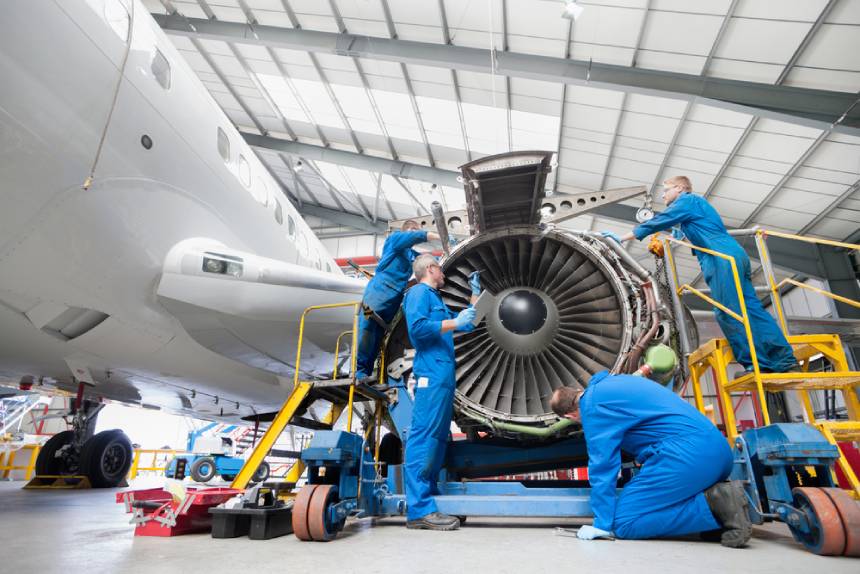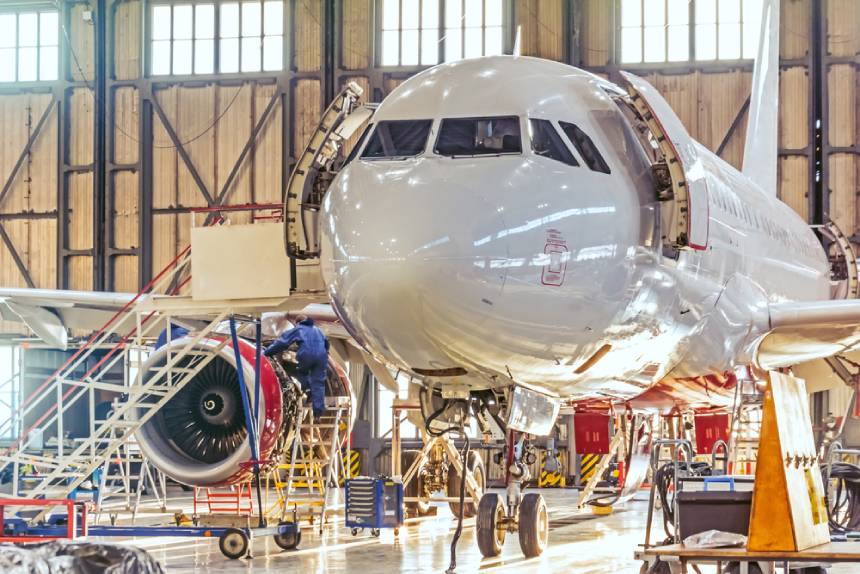 Navigating the intricate landscape of aerospace regulatory compliance is a formidable challenge for manufacturers in this sector. The complexities of adhering to stringent aerospace compliance standards require a robust and efficient system. This is where Enterprise Resource Planning (ERP) comes into play.
Navigating the intricate landscape of aerospace regulatory compliance is a formidable challenge for manufacturers in this sector. The complexities of adhering to stringent aerospace compliance standards require a robust and efficient system. This is where Enterprise Resource Planning (ERP) comes into play.
ERP and aerospace compliance go hand in hand. ERP systems are not just about managing business operations; they are crucial in ensuring compliance with the ever-evolving regulatory requirements of the aerospace and defense industries. By leveraging aerospace compliance software, aerospace manufacturers can streamline their processes, ensuring they meet quality standards while maintaining operational efficiency.
Understanding Aerospace Regulatory Compliance
Aerospace regulatory compliance is a critical aspect that encompasses a broad spectrum of standards and practices. These regulations are designed to ensure the highest levels of safety, quality assurance, and efficiency in aerospace manufacturing. From managing raw materials to overseeing the entire production process, compliance touches every facet of the aerospace business.
For aerospace manufacturers, meeting these aerospace compliance standards is not just about fulfilling legal obligations; it’s about affirming their commitment to aerospace safety and compliance. Failing to comply can have severe repercussions, including financial penalties and reputational damage. Therefore, understanding and managing these compliance processes is vital for the sustainability and success of any aerospace sector company.
ERP Solutions and Aerospace Compliance
ERP for aerospace compliance plays a pivotal role in aiding aerospace companies to achieve and maintain regulatory compliance. By integrating various business processes into a unified system, ERP facilitates a seamless integration of information across different departments. This integration is crucial for ensuring that all aspects of aerospace manufacturing adhere to the required regulatory standards.
ERP systems deliver real-time visibility into every operation, from supply chain management to final inspections. This transparency is essential for making informed decisions and taking proactive measures to ensure compliance.
Furthermore, ERP systems centralize compliance documentation, automate notifications for critical compliance deadlines, and standardize reporting formats across the enterprise. This not only improves accountability but also helps in reducing the risk of non-compliance incidents.
ERP Strategies for Aerospace Regulatory Compliance
Developing effective ERP strategies for aerospace regulatory compliance involves several key components. First, it’s essential to choose a cloud-based ERP system. Cloud-based solutions offer greater flexibility, scalability, and accessibility, which are crucial for managing the complex and dynamic nature of aerospace regulatory requirements. These systems provide real-time data and analytics, enabling aerospace manufacturers to make informed decisions quickly and efficiently.
Key ERP features tailored for aerospace include modules for supplier quality management, document control, product lifecycle tracking, and employee training records. All of these components directly impact compliance and are essential to streamlining operations.
Project managers play a crucial role in implementing ERP strategies. They ensure that the ERP system is tailored to the specific needs of the aerospace industry, including compliance management. By effectively managing the ERP implementation project, they help streamline operations and integrate various business processes, ensuring seamless adherence to regulatory standards.
Another critical aspect of ERP strategies is the continuous monitoring and updating of the system to align with the latest regulatory changes. The aerospace industry is known for its rapid technological advancements and evolving regulatory landscape. Hence, an ERP system that can adapt and update per these changes is indispensable for ensuring ongoing compliance.
Challenges and Solutions in ERP Implementation

Implementing ERP systems in the aerospace industry is not without its challenges. One major hurdle is integrating ERP with existing processes. Many aerospace manufacturing firms operate with legacy systems, making integration complex.
Outdated systems lack compatibility with modern compliance frameworks and fail to provide the real-time analytics necessary for today’s stringent aerospace audits. Migrating from legacy platforms to modern ERP systems ensures manufacturers meet both current and future regulatory needs.
To overcome these challenges, aerospace companies need to adopt a flexible and adaptable ERP solution, preferably cloud-based, to ensure easy updates and scalability. Training and change management are also crucial to ensure that employees are equipped to use the new system effectively.
ERP as a Tool for Streamlined Operations and Compliance Management
ERP systems in the aerospace industry serve as more than just compliance tools; they are enablers of streamlined operations. By automating key processes, ERP systems reduce manual labor, minimize errors, and increase efficiency. This automation extends to compliance management, where ERP systems can track and ensure adherence to regulatory requirements in real time.
Additionally, ERP enables teams to track conformance with ISO and AS9100 standards, offering notifications for corrective action plans and real-time access to audit data. This helps teams stay on top of compliance documentation and take proactive steps to prevent violations.
The ability of ERP to provide real-time data and analytics also supports informed decisions that align operations with compliance goals. This strategic alignment ensures that compliance supports, rather than hinders, business objectives.
The Future of ERP in Aerospace Compliance
The future of ERP and aerospace compliance in maintaining aerospace compliance standards looks promising, with continuous innovations and advancements in technology. The integration of advanced analytics, Artificial Intelligence (AI), and the Internet of Things (IoT) with ERP systems is set to take compliance management to new heights. These technologies will provide deeper insights into operations, predictive analytics for compliance risks, and more automated compliance processes.
As regulatory expectations increase, modern ERP systems will serve as the backbone for digital compliance transformation. This includes integration with digital twin technology to simulate and test compliance scenarios, enhancing risk management and supporting long-term compliance planning.
As the aerospace and defense industries continue to evolve, ERP systems will also need to adapt, offering more sophisticated, comprehensive, and agile compliance solutions.
Conclusion
The role of ERP in maintaining aerospace regulatory compliance cannot be overstated. In an industry where safety and compliance are paramount, ERP systems provide the necessary framework and tools to ensure that aerospace manufacturers meet rigorous regulatory standards.
From streamlining business operations to real-time visibility, ERP solutions are indispensable for aerospace companies. As technology continues to advance, ERP systems will become even more integral to managing compliance in the ever-evolving aerospace sector.
Investing in ERP for aerospace compliance is not just about passing audits—it’s about future-proofing your business. By enabling transparent reporting, faster responses to regulatory updates, and improved collaboration across departments, modern ERP solutions ensure that aerospace companies remain competitive while protecting safety and integrity.
